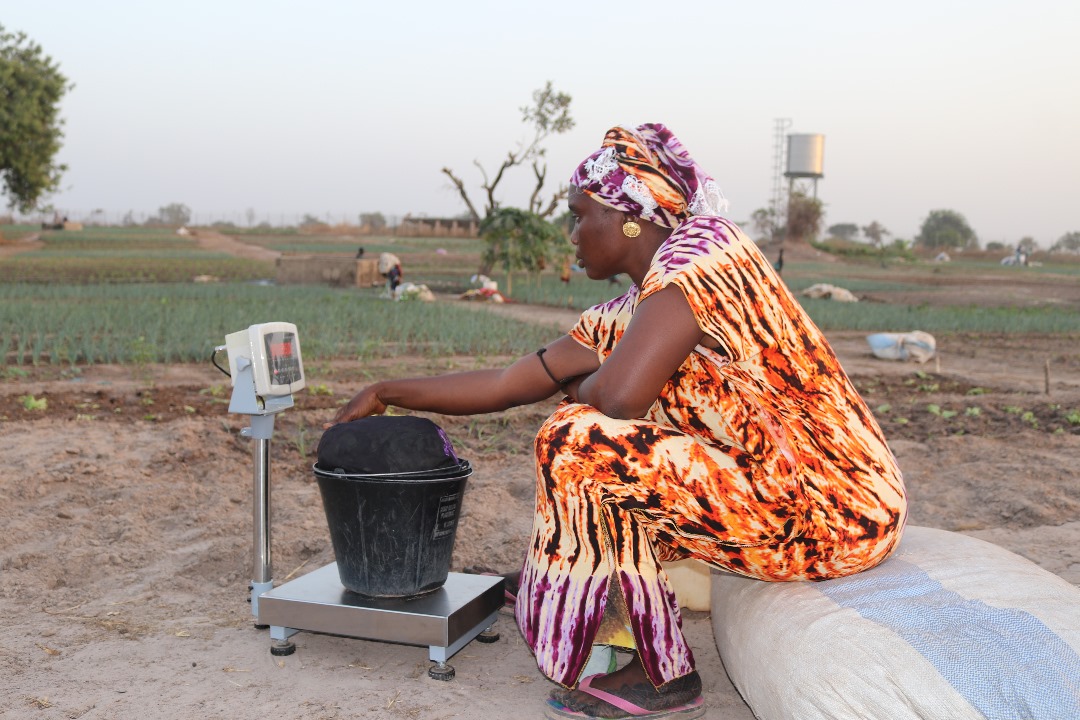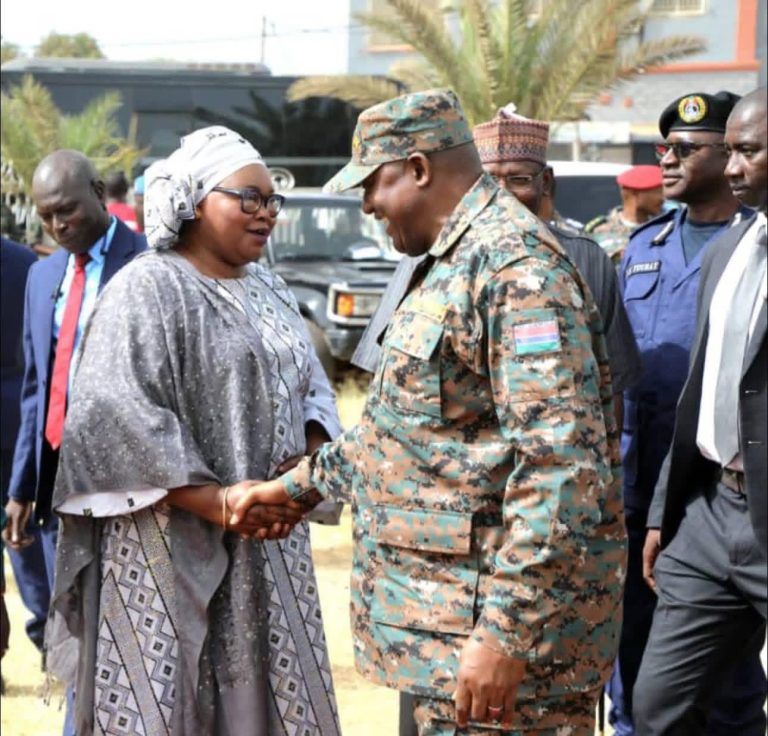
By: Modou Touray
Promoting the Culture of Measurement in Onion Production
In The Gambia, food prices at local markets are determined by the interplay of bargaining power and ad hoc measures between vegetable growers and marketers. The use of traditional weights and measures is causing inefficient transactions and has negatively affected farmers’ productivity, income, and competitiveness. Middle women, locally called ‘ngendenjais’, uphold ad hoc traditional market transactions in a way that benefits their interests at the expense of the producers.
As part of its drive to increase competitiveness among value chains, WACOMP-GM is working on promoting the culture of weighing and measurement in horticulture for quality compliance and increased income. With funding from the EU, UNIDO supplied weighting machines to 120 gardens to help address these challenges.
In January 2023, training of trainers on bench weighing scales was organized for engineers from the Ministry of Agriculture (MoA) and metrologists of the Gambia Standards Bureau (TGSB). 25 engineers from the Ministry of Agriculture were trained on how to assemble and repair the scales.
Held across the 5 intervention regions of the project in June 2023, another training targeting 120 garden secretaries on the operation and maintenance of the bench weighing scales was organized. This training of garden secretaries, facilitated by Mr. Abdoulie F. Njie, a metrologist at TGSB, was meant to develop the capacities of the beneficiaries on the importance of weighing their produce and the know-how on how to operate and maintain the donated scales for sustainability.
Amie Drammeh is one of the onion producers who is now ripping the fruits of measurement. She is the vice president of a beneficiary community garden in Medina Serign Mass Garden, a village about 19 kilometers away from the capital, Banjul.
“We used to sell our harvests per pot, bucket, or pan without measuring them. This puts us in a very disadvantaged position as the system only favors the ngendemjais,” she said.
Amie, aged 41, who uses her proceeds to fund the education of her six children, said her profits have now increased significantly since last marketing season as she made use of the weighting scales the WACOMP-GM project gave them.
“With these scales and the training we received, we are now able to operate and maintain them effectively. Now we have accurate data on our total production yield, the amount of postharvest loss, and other important details,” she rejoiced.
Malamin Drammeh, the National Horticulture Value Chain Expert, said scales also play a critical role in agribusiness and trading, adding that precise weighing ensures fair trade and trust among producers and buyers.
“Thanks to the project’s awareness-raising and provision of weighing scales, farmers are adopting standard weights and measures, as these standards would enhance their business competitiveness and increase their profits,” said Drammeh.
The modern agricultural landscape heavily relies on precision and efficiency, which is where scales become indispensable tools. From seed selection to harvest, scales ensure that farmers make informed decisions, optimizing production while minimizing waste and environmental impact. As we continue to face global challenges such as population growth, climate change, and resource scarcity, the importance of scales in agriculture becomes even more pronounced.
Encouraging sustainable farming practices, promoting technological advancements, and supporting our farming communities are essential steps UNIDO continues to promote towards securing a resilient and thriving future in The Gambia.




